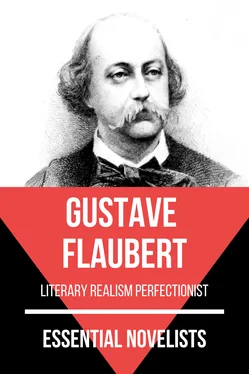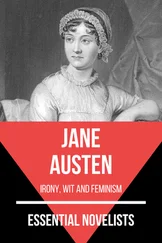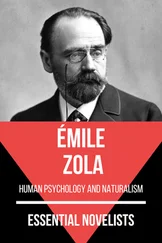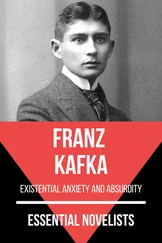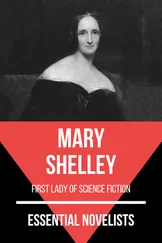Emma shuddered.
“Because of the change of regimen,” continued the chemist, “and of the perturbation that results therefrom in the whole system. And then the water at Paris, don’t you know! The dishes at restaurants, all the spiced food, end by heating the blood, and are not worth, whatever people may say of them, a good soup. For my own part, I have always preferred plain living; it is more healthy. So when I was studying pharmacy at Rouen, I boarded in a boarding house; I dined with the professors.”
And thus he went on, expounding his opinions generally and his personal likings, until Justin came to fetch him for a mulled egg that was wanted.
“Not a moment’s peace!” he cried; “always at it! I can’t go out for a minute! Like a plough-horse, I have always to be moiling and toiling. What drudgery!” Then, when he was at the door, “By the way, do you know the news?”
“What news?”
“That it is very likely,” Homais went on, raising his eyebrows and assuming one of his most serious expression, “that the agricultural meeting of the Seine-Inferieure will be held this year at Yonville-l’Abbaye. The rumour, at all events, is going the round. This morning the paper alluded to it. It would be of the utmost importance for our district. But we’ll talk it over later on. I can see, thank you; Justin has the lantern.”
––––––––

THE NEXT DAY WAS A dreary one for Emma. Everything seemed to her enveloped in a black atmosphere floating confusedly over the exterior of things, and sorrow was engulfed within her soul with soft shrieks such as the winter wind makes in ruined castles. It was that reverie which we give to things that will not return, the lassitude that seizes you after everything was done; that pain, in fine, that the interruption of every wonted movement, the sudden cessation of any prolonged vibration, brings on.
As on the return from Vaubyessard, when the quadrilles were running in her head, she was full of a gloomy melancholy, of a numb despair. Leon reappeared, taller, handsomer, more charming, more vague. Though separated from her, he had not left her; he was there, and the walls of the house seemed to hold his shadow.
She could not detach her eyes from the carpet where he had walked, from those empty chairs where he had sat. The river still flowed on, and slowly drove its ripples along the slippery banks.
They had often walked there to the murmur of the waves over the moss-covered pebbles. How bright the sun had been! What happy afternoons they had seen alone in the shade at the end of the garden! He read aloud, bareheaded, sitting on a footstool of dry sticks; the fresh wind of the meadow set trembling the leaves of the book and the nasturtiums of the arbour. Ah! he was gone, the only charm of her life, the only possible hope of joy. Why had she not seized this happiness when it came to her? Why not have kept hold of it with both hands, with both knees, when it was about to flee from her? And she cursed herself for not having loved Leon. She thirsted for his lips. The wish took possession of her to run after and rejoin him, throw herself into his arms and say to him, “It is I; I am yours.” But Emma recoiled beforehand at the difficulties of the enterprise, and her desires, increased by regret, became only the more acute.
Henceforth the memory of Leon was the centre of her boredom; it burnt there more brightly than the fire travellers have left on the snow of a Russian steppe. She sprang towards him, she pressed against him, she stirred carefully the dying embers, sought all around her anything that could revive it; and the most distant reminiscences, like the most immediate occasions, what she experienced as well as what she imagined, her voluptuous desires that were unsatisfied, her projects of happiness that crackled in the wind like dead boughs, her sterile virtue, her lost hopes, the domestic tete-a-tete—she gathered it all up, took everything, and made it all serve as fuel for her melancholy.
The flames, however, subsided, either because the supply had exhausted itself, or because it had been piled up too much. Love, little by little, was quelled by absence; regret stifled beneath habit; and this incendiary light that had empurpled her pale sky was overspread and faded by degrees. In the supineness of her conscience she even took her repugnance towards her husband for aspirations towards her lover, the burning of hate for the warmth of tenderness; but as the tempest still raged, and as passion burnt itself down to the very cinders, and no help came, no sun rose, there was night on all sides, and she was lost in the terrible cold that pierced her.
Then the evil days of Tostes began again. She thought herself now far more unhappy; for she had the experience of grief, with the certainty that it would not end.
A woman who had laid on herself such sacrifices could well allow herself certain whims. She bought a Gothic prie-dieu, and in a month spent fourteen francs on lemons for polishing her nails; she wrote to Rouen for a blue cashmere gown; she chose one of Lheureux’s finest scarves, and wore it knotted around her waist over her dressing-gown; and, with closed blinds and a book in her hand, she lay stretched out on a couch in this garb.
She often changed her coiffure; she did her hair a la Chinoise, in flowing curls, in plaited coils; she parted in on one side and rolled it under like a man’s.
She wanted to learn Italian; she bought dictionaries, a grammar, and a supply of white paper. She tried serious reading, history, and philosophy. Sometimes in the night Charles woke up with a start, thinking he was being called to a patient. “I’m coming,” he stammered; and it was the noise of a match Emma had struck to relight the lamp. But her reading fared like her piece of embroidery, all of which, only just begun, filled her cupboard; she took it up, left it, passed on to other books.
She had attacks in which she could easily have been driven to commit any folly. She maintained one day, in opposition to her husband, that she could drink off a large glass of brandy, and, as Charles was stupid enough to dare her to, she swallowed the brandy to the last drop.
In spite of her vapourish airs (as the housewives of Yonville called them), Emma, all the same, never seemed gay, and usually she had at the corners of her mouth that immobile contraction that puckers the faces of old maids, and those of men whose ambition has failed. She was pale all over, white as a sheet; the skin of her nose was drawn at the nostrils, her eyes looked at you vaguely. After discovering three grey hairs on her temples, she talked much of her old age.
She often fainted. One day she even spat blood, and, as Charles fussed around her showing his anxiety—
“Bah!” she answered, “what does it matter?”
Charles fled to his study and wept there, both his elbows on the table, sitting in an arm-chair at his bureau under the phrenological head.
Then he wrote to his mother begging her to come, and they had many long consultations together on the subject of Emma.
What should they decide? What was to be done since she rejected all medical treatment? “Do you know what your wife wants?” replied Madame Bovary senior.
“She wants to be forced to occupy herself with some manual work. If she were obliged, like so many others, to earn her living, she wouldn’t have these vapours, that come to her from a lot of ideas she stuffs into her head, and from the idleness in which she lives.”
“Yet she is always busy,” said Charles.
“Ah! always busy at what? Reading novels, bad books, works against religion, and in which they mock at priests in speeches taken from Voltaire. But all that leads you far astray, my poor child. Anyone who has no religion always ends by turning out badly.”
Читать дальше
